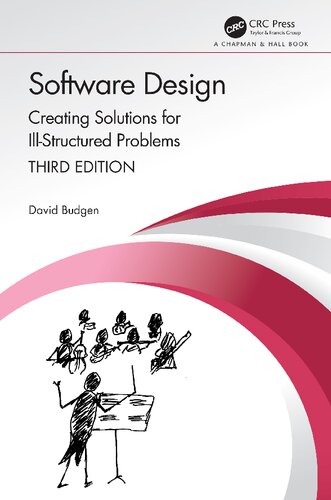

Most ebook files are in PDF format, so you can easily read them using various software such as Foxit Reader or directly on the Google Chrome browser.
Some ebook files are released by publishers in other formats such as .awz, .mobi, .epub, .fb2, etc. You may need to install specific software to read these formats on mobile/PC, such as Calibre.
Please read the tutorial at this link: https://ebookbell.com/faq
We offer FREE conversion to the popular formats you request; however, this may take some time. Therefore, right after payment, please email us, and we will try to provide the service as quickly as possible.
For some exceptional file formats or broken links (if any), please refrain from opening any disputes. Instead, email us first, and we will try to assist within a maximum of 6 hours.
EbookBell Team

4.7
76 reviewsSoftware Design: Creating Solutions for Ill-Structured Problems, Third Edition provides a balanced view of the many and varied software design practices used by practitioners. The book provides a general overview of software design within the context of software development and as a means of addressing ill-structured problems. The third edition has been expanded and reorganised to focus on the structure and process aspects of software design, including architectural issues, as well as design notations and models. It also describes a variety of different ways of creating design solutions such as plan-driven development, agile approaches, patterns, product lines, and other forms.
Features
•Includes an overview and review of representation forms used for modelling design solutions
•Provides a concise review of design practices and how these relate to ideas about software architecture
•Uses an evidence-informed basis for discussing design concepts and when their use is appropriate
This book is suitable for undergraduate and graduate students taking courses on software engineering and software design, as well as for software engineers.
Author
David Budgen is a professor emeritus of software engineering at Durham University. His research interests include evidence-based software engineering (EBSE), software design, and healthcare informatics.